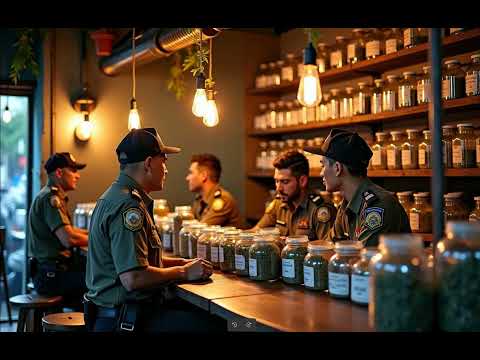The future of cannabis in Thailand is often misrepresented in international media, which tends to
generalize and sensationalize, missing the nuances of the Thai socio-political context.
Legal Status:The current Ministry of Public Health announcement regarding cannabis as a controlled herb is a draft proposal, not enacted law. Historically, similar drafts have stalled or been disregarded. The legislative process in Thailand is lengthy and politically complex, requiring negotiation and sometimes ending in abandonment. Foreign media often misinterpret these proposals as immediate law, overlooking the ongoing and fluid legislative process.
Historical Context and Royal Influence:
Thailand’s initial cannabis decriminalization was underpinned by a statement from King Maha
Vajiralongkorn, referencing the plant’s deep roots in Thai culture beyond medical use. This royal
endorsement legitimized broader cannabis availability. The current government’s push for
stricter medical regulation and severe restrictions on recreational use is seen by some as
diverging from the spirit of the royal pronouncement. This creates a delicate political situation,
not of open defiance but of negotiating policy within a framework where royal wishes carry
significant weight and are open to interpretation, especially when balancing public health,
economic liberalization, and tradition. This delicate balance is often ignored by foreign
commentators but is central to the domestic debate.
Potential Impact if Enacted:
If the proposal becomes law, the effects on cultivators, dispensaries, and the market would be
immediate and significant:
Cultivators: Small and medium-sized growers would face heavier regulations, higher
licensing fees, and stricter cultivation controls. This could lead to market consolidation,
favoring large enterprises and marginalizing independent farmers.
Dispensaries: The current semi-regulated model would end. Dispensaries might adapt by
obtaining herbal medicine licenses and issuing “prescriptions” for minor ailments with each
sale, as seen in parts of the US. This workaround could create a de facto regulated
recreational market under medical pretenses, making enforcement difficult without
substantial resources.
Tourism: For international visitors, a prescription valid for their visa duration could become a
practical solution, allowing access to cannabis without repeated medical consultations and
supporting tourism revenue. While this diverges from standard medical practice, economic
incentives may drive such adaptations.Market Consequences:
Tighter regulations could raise costs and restrict supply, increasing prices for legal cannabis.
This could fuel a black market, as demand for recreational or high-THC strains persists. If legal
access becomes too difficult or expensive, consumers may turn to illicit sources, undermining
public health and safety—the very issues stricter regulations aim to address.
Political Ramifications:
Speculation about a military coup over cannabis policy is exaggerated but highlights deeper
Thai political dynamics. While cannabis alone is unlikely to trigger upheaval, perceived
government overreach, lack of public consultation, or actions seen as misaligned with national
sentiment or royal endorsement can foster instability. Mismanagement of cannabis policy,
combined with other issues or declining public confidence, could contribute to broader
disaffection and, historically, such dissatisfaction has sometimes led to significant political
change. Thus, cannabis policy is a test of government legitimacy and the resilience of Thailand’s
political system under public and economic pressure.
Conclusion:
International media have sensationalized a situation that remains dynamic and unresolved. The
current document is a proposal, not law. Thailand will likely adopt adaptive measures allowing
the cannabis industry to continue, albeit under stricter, medically oriented regulation. The main
challenge is balancing public health, economic interests, and the complex interpretation of royal
guidance. The future of cannabis in Thailand is still unfolding, shaped by legislative debate,
market adaptation, and ongoing political currents. Careful observation beyond headlines is
essential for understanding this evolving issue.
Thailand Cannabis Law Amendments 2025
- 2025.06.30
- 大麻



















コメントを書く